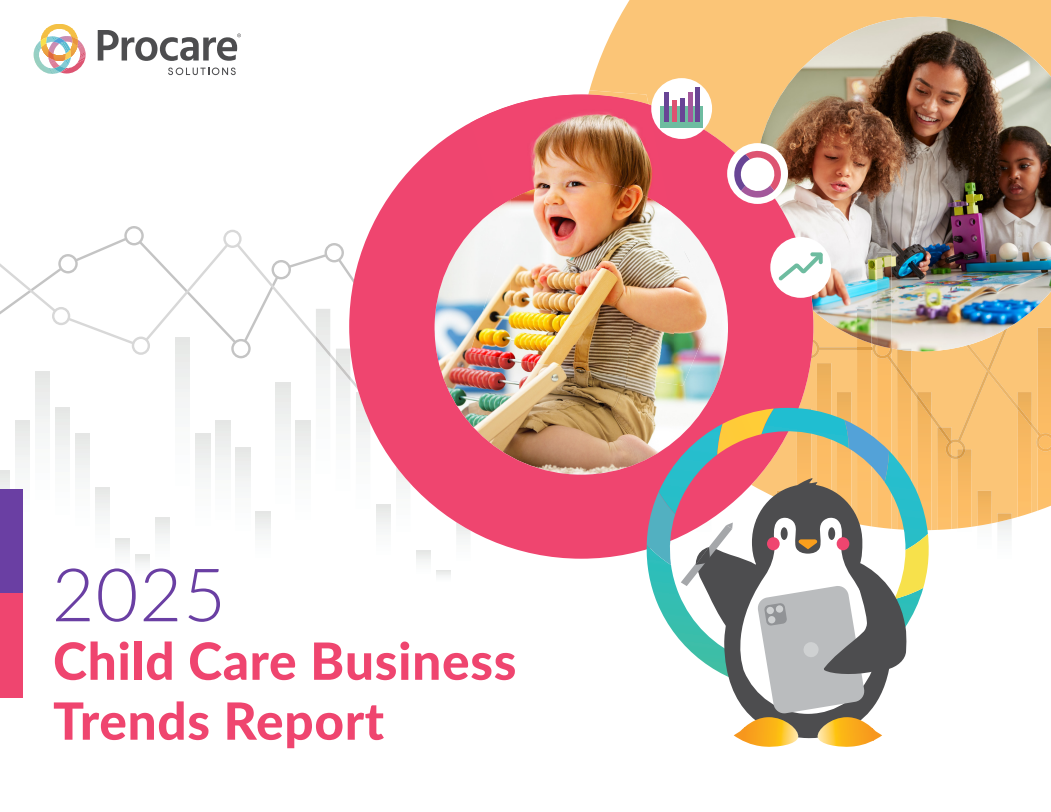
Are you considering a career as a certified child care provider?
A career as a certified child care provider can provide tremendous personal fulfillment for the right person who loves working with kids, has a passion for education and wants to make a difference.
As a child care provider, you’ll have the opportunity to work with children each day and support them through social, emotional, physical, cognitive and linguistic development during their most critical years for early learning.
Earning professional child care certifications will help you enhance your skills as a child care provider, earn the trust of parents and demonstrate to employers your commitment to excelling in your field. You’ll also find plenty of opportunities for career advancement, including self-employment, teaching and child care administration.
If you’re excited to learn how to become a child care provider, we’ve created this guide especially for you. We describe exactly what certified child care providers do and detail the requirements for earning professional certification. We’ll explain the certification process and highlight some additional steps you can take to excel in your career. Finally, we’ll highlight some of the most exciting career opportunities that are available to early childhood educators.
What is a Certified Child Care Provider?
Child care providers are responsible for providing kids with routine care, ensuring their safety, supporting their social, physical and cognitive development with age-appropriate learning activities, and creating a positive environment that minimizes stress and promotes learning and growth.
Certified child care workers perform duties that include:
- Supervising children from infancy up to 12 years of age to ensure their safety
- Organizing mealtimes and preparing meals and snacks for kids
- Helping kids develop self-care routines, including personal hygiene
- Planning lessons and organizing activities to support cognitive development
- Ensuring kids get enough physical activity
- Supporting kids as they develop emotionally and socially as part of the community
- Teaching social and life skills such as manners, mutual respect and conflict resolution
- Recording observations of child behaviors, development and interests
According to the United States Bureau of Labor Statistics, child care workers in the United States earn an average salary of $24,230 per year. Child care providers may find employment in child care centers or private households, or they may choose to open their own in-home daycare center to provide services to families in their local neighborhoods. To meet the needs of parents who work during the day, child care centers usually open between 6 a.m. and 7 a.m. each morning and close between 6 p.m. and 7 p.m. each night.
Requirements for Becoming a Certified Child Care Provider

To become a certified child care provider, you will need to earn a professional credential or designation from one of two nationally recognized organizations: the Council for Professional Recognition, which offers the Child Development Associate (CDA) designation, and the National Child Care Association, which offers the Certified Childcare Professional (CCP) designation. While the requirements for these designations differ in several ways, they are both accepted as professional credentials for child care workers.
Earning Your CCP Certification
The CCP certification is administered by the National Early Childhood Program Accreditation (NECPA) Commission, an organization established in 1991 to encourage quality and recognize achievement in early child care programs.
To meet the requirements of the CCP evaluation process, you must:
- Possess a high school diploma or the equivalent education.
- Be 18 years of age or older.
- Speak, read and write English enough to perform duties as a child care professional.
- Select a CCP Field Counselor to guide and evaluate you throughout the certification process.
- Accrue 720 hours of experience (approximately 18 weeks of full-time employment) working with kids from infants to six years of age at a center-based care facility.
- Complete 180 hours of education or training across nine professional ability areas (see below).
- Pass the National Early Childhood Education accreditation exam.
- Prepare and submit a professional development portfolio.
- Successfully participate in an observational assessment of your job performance.
- Obtain letters of endorsement from a child care colleague and a child care director.
- Complete two parent evaluations.
- Submit two writing samples with relevance to professional activities.
- Establish plans for ongoing professional development in early childhood education.
- Complete the application review process through the NECPA Professional Standards Council.
Successful applicants for the CCP certification are required to demonstrate competency across nine professional ability areas:
- Establishing and maintaining a safe and nurturing learning environment.
- Promoting cognitive, physical and social/emotional development.
- Creating purposeful learning through curriculum and content.
- Being inclusive and culturally responsive.
- Demonstrating effective management of the learning environment.
- Showing a commitment to professional development and leadership in early child care.
- Using assessments to plan learning opportunities and document outcomes via recorded observations.
- Exhibiting knowledge and practical application of child development theory.
- Displaying computer literacy and supporting learning through technology.
Your journey toward CCP certification begins on the NECPA website, where you’ll be able to designate a field counselor for your application process and purchase a CCP enrollment packet containing the required documents and additional instructions to facilitate your application.
Once you have completed the requirements of the enrollment packet, you will submit a CCP Observation and Assessment Request Form, along with copies of your enrollment packet documents and the required assessment fees. Once your documents have been reviewed, your field counselor will administer a performance-based assessment by observing your interactions with kids in a child care setting.
Your entire application will be reviewed by the Professional Standards Council. If you are successful, you will receive the CCP designation. The designation is valid for a period of two years, after which it must be renewed. To renew CCP designations, child care professionals must provide evidence of their participation in 24 hours of continuing education every two years.
Earning Your CDA Certification
The CDA Certification is administered by the Council for Professional Recognition through the Child Development Associate National Credentialing Program, established in 1975 to assess, recognize and improve the performance of child care professionals.
In applying for the CDA credential, you may choose from four different pathways to certification depending on the setting in which you work. The four settings are:
- Center-Based, Preschool – for child care professionals working with children from ages three to five.
- Center-Based, Infant-Toddler – for child care professionals working with children from birth to 36 months of age.
- Family Child Care – for child care professionals working with children from birth to five years of age.
- Home Visitor – for child care professionals working with families of children from birth to five years of age.
Before applying for the CDA credential, you must:
- Earn a high school diploma or be currently enrolled as a junior or a senior in a high school career and technical program that focuses on early childhood education.
- Complete 120 hours of early childhood education training, with at least 10 training hours in each of eight CDA subject areas:
- Planning a safe and healthy learning environment
- Advancing children’s physical and intellectual development
- Supporting children’s social and emotional development
- Building productive relationships with families
- Engaging in program operations management
- Displaying a commitment to professionalism
- Observing and recording child behaviors
- Demonstrating theoretical knowledge of child development and learning
- Complete 480 hours of professional work experience in the chosen child care setting.
- Prepare a CDA Professional Portfolio as instructed in the CDA Competency Standards Book.
- Connect with a CDA Professional Development (PD) Specialist.
Having completed the above requirements, you may submit your CDA application online or complete and submit by mail the paper application provided with the CDA Competency Standards Book. Following acceptance of your application, you will be notified of your eligibility to schedule a CDA Verification Visit and CDA Exam.
During the Verification Visit, the designated PD Specialist will visit your workplace and observe your interactions with the children in your care. They will assess your professional strengths and greatest opportunities for improvement, then submit an evaluation to the Council. The Council will consider the results of the verification visit when determining whether to award you the CDA credential.
You’ll need to complete the CDA exam by setting an appointment at an approved testing facility and reporting there in person. The CDA exam consists of 65 questions – 60 multiple-choice and five scenario-based questions with a descriptive photo and a short narrative. You’ll have an hour and 45 minutes to complete the exam.
Following your exam, a committee with the Council for Professional Recognition will review your application and results, then determine whether to award you the CDA professional designation. If the committee decides that you need additional training, you’ll receive recommendations on how to improve your application.
Excelling as a Child Care Provider

One important similarity between the nine professional ability areas of the CCP and the eight subject areas of the CDA is the requirement for ongoing professional development. Earning your professional designation as a child care provider isn’t just a commitment to educating children, it also represents a commitment to educating yourself, building your skills and expanding your qualifications as a child care provider.
To help you get moving in the right direction, here are three steps you can take to go beyond your professional certification and truly excel as a child care provider.
Complete a Degree Program in Early Childhood Education
Completing a degree program in early childhood education is a way to increase your theoretical knowledge of child development and learning.
According to the National Center for Education Statistics, there are over 1,000 institutions (colleges and universities) in the United States offering associate’s and bachelor’s degree programs in early childhood education. Earning a college degree in early childhood education brings you closer to becoming an expert in your field, gives you an edge in the employment market, and helps you earn the trust and confidence of parents.
Get Experience in Diverse Child Care Settings
Getting work experience in diverse child care settings can broaden your perspective, expose you to new challenges and opportunities, and support your career development as a child care provider. Here are just a few options you could consider:
- Work with preschool-aged kids in a center-based care facility
- Work with infants in a center-based care facility
- Work with kids who have special needs in a center-based care facility
- Volunteer at hospitals for sick children
- Tutor young children in math and reading
- Work as a camp counselor
- Volunteer at an after school program, helping kids with homework or teaching a skill
Pursue Continuing Education & Additional Certifications
As a certified child care provider, you can gain valuable knowledge and insight, enhance your skills and improve your employment prospects by pursuing continuing education and additional certifications related to early childhood education.
Some certifications, such as CPR and First Aid, are required for employment in most centers, while others are optional but may be desirable for employers. Consider taking courses or completing certificate programs in:
- Applied behavior analysis
- Abuse counseling
- Water safety
- Infant care
- Nutrition
- Positive discipline
- Child care administration
Career Opportunities for Early Childhood Educators

There are numerous career pathways available for child care providers who wish to broaden their horizons and take on more responsibility. Some of the best options include:
- Child Care Administrator/Director – You’ll be responsible for managing a center-based care facility, with duties like staff management, budgeting, designing curriculum and programming, and supervising daily operations.
- Preschool Teacher – You’ll work at a preschool, providing education services and routine care for kids between birth and five years of age.
- Kindergarten or Elementary School Teacher – You’ll work for a local school district providing education for children between four and 12 years of age.
- Special Education Teacher – You’ll work with students who have mental, physical, emotional and learning disabilities.
- Self-employed Home-based Daycare Operator – You’ll operate your own home-based child care operation with full control and oversight of your business. You may need to obtain a child care license from your state child services department. You’ll need to create a safe and structured child care environment in your home, market and sell your services in the local neighborhood, communicate with parents, and manage administrative tasks like attendance tracking and tuition payments.
Start Your Own Child Care Center with Procare Solutions
If you’re excited by the prospect of opening your own in-home daycare, you’ll be even more excited at how easy it is to get started with Procare Solutions.
Our child care app are used by over 30,000 child care centers to:
- Manage and automate child care invoices and payment
- Engage parents with direct messaging, mass communications, and newsletters via email or SMS
- Develop and share lesson plans and record observations
- Manage child and family information
- Track child care enrollment and attendance
- …and a lot more
Want to see how Procare makes it easy to start and manage your own child care center?
Request a Demo
Request a demo and talk with one of our friendly Procare experts to get a tailored child care solution for the unique needs of your business.





